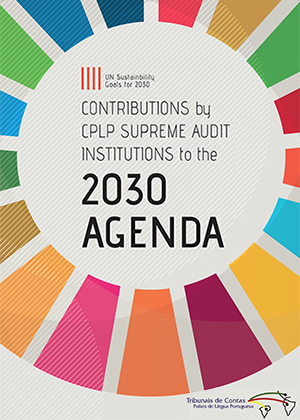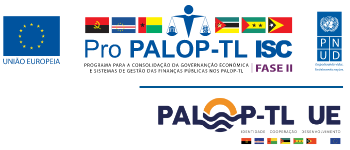Contributions by CPLP Supreme Audit Institutions to the 2030 Agenda

The Program for the Consolidation of Economic Governance and Public Finance Management Systems in the PALOP-TL (Pro PALOP-TL ISC) aims to improve economic governance, accountability and transparency of public finance in the Portuguese-speaking African Countries (PALOP) and East Timor. The program is funded by the European Union with a total amount of 14.5 million Euros and is implemented directly by the United Nations Development Program (UNDP). Since 2014, this program has engaged in a holistic and integrated manner with state and non-state actors in the Public Finance Management Systems of the six PALOP-TL countries, plus Brazil and Portugal, around systemic exchanges to strengthen budget transparency and accountability. In this way, the program has promoted a framework of South-South and triangular cooperation and partnerships that contribute to accelerating the achievement of national targets of the Sustainable Development Goals (SDGs) 16, 5 and 17 in the PALOP region and East Timor.
One of the most dynamic and impactful partnerships is the coordination of joint initiatives with AFROSAI-E (African Organization of Supreme Audit Institutions of English-Speaking Countries) and the Good Financial Governance Program of the German Cooperation-GIZ for Africa, in the context of the program’s support to the consolidation of the OISC|CPLP (Organization of Supreme Audit Institutions of the Community of Portuguese Speaking Countries). This partnership has allowed for technical and financial support for the adoption and standardized application of the PFM-RF (Public Finance Management Reporting Framework) by the Courts of Auditors of the PALOPTL. The tool was launched in June 2019, during the VI OISC|CPLP Seminar, hosted by the Court of Auditors of Cabo Verde in the city of Praia (Cape Verde), under the theme “Improving Public Finance Management and the 2030 Agenda: The PFM-RF, Benefits and Challenges”.
In January 2020, the Pro-PALOP-TL ISC organized a community of practice comprised of state actors from public finance management systems in the PALOP-TL, plus Brazil and Portugal, under the auspices of the National Assembly of Angola in Luanda. This event was attended by about 150 delegates representing the courts of auditors, ministries of finance and planning, and parliaments of these countries. Over the course of three days, delegates exchanged experiences on best practices and contributions to accelerate the achievement of the SDGs targets in their respective countries, highlighting the recommendation to promote communities of practice to inform, exchange experiences, and train SAI judges and auditors in tools aimed at assessing and auditing SDG implementation, such as the PFM-RF.
Today, we are very pleased to see an international consensus, including in the PALOP-TL region, on the need to democratize the process of monitoring and following-up on national efforts to achieve the SDGs. In this context, Courts of Auditors play an even greater role, hence the relevance of this publication that brings more visibility to their contributions to the 2030 Agenda.
Ricardo Godinho Gomes
Chief Technical Advisor
